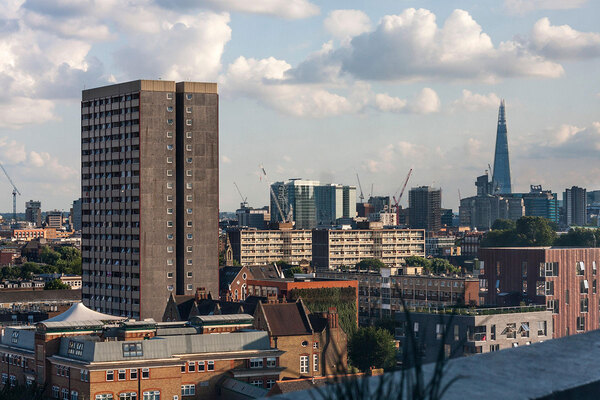East London social landlords in merger talks
An east London landlord, which is currently non-complaint with the English regulator’s standards due to financial weaknesses, has entered merger talks with a larger, neighbouring housing association.
Tower Hamlets Community Housing (THCH), which manages around 3,200 homes, is exploring a tie-up with 10,000-home Poplar Harca. A decision by the groups’ boards is due by the autumn.
Three months ago, THCH was downgraded for its governance and financial viability, to non-complaint grades of G3/V3.
The Regulator of Social Housing found THCH was “unable to meet the costs of its day-to-day operating activities and repair liabilities” and was looking at a covenant waiver from its funder.
THCH had failed to identify the “full accounting implications of the Building Safety Act”, while it faced a “substantial programme of fire remediation work”, the regulator said.
In its last reported financial year to March 2022, THCH posted a surplus of £483,000 on turnover of £22.6m.
Anita Khan, chief executive of THCH, said: “It’s a particularly challenging backdrop for housing providers of our size, and the long-term viability is uncertain.”
Ms Khan added: “Combining our financial strength will give us more resilience to make a difference – especially for residents who have been significantly impacted by the cost of living crisis.”
Poplar Harca, whose homes are mainly in Poplar and Bow in London, currently has a G1/V2 rating with the regulator. In its last reported full year to March 2022, it posted a £6.4m group surplus on revenue of £71.8m.
Poplar Harca itself was recently among several landlords downgraded by Moody’s. The rating agency dropped its baseline credit assessment to Ba1, which is a non-investment grade rating and one of the lowest in the sector.
The organisation’s overall grade is two notches higher, at Baa2, as is often the case for housing businesses, reflecting the likelihood of government support if it were to get into financial difficulty.
At the time, Moody’s said Poplar Harca had weaker metrics than its peers, which included “their weak operating margins and interest covers”, as well as higher exposure to market sales, which make it more vulnerable to economic conditions.
It said that, alongside L&Q, the landlord was “the most exposed in Moody’s portfolio” to market sale and was “expecting over 30% of turnover from market sales (including joint ventures) over the next three years; a very high exposure”.
Steve Stride, Poplar Harca’s chief executive, said: “Combining strengths with THCH, our very near neighbour, would consolidate our local commitment, and unlock efficiencies to fund new homes and community regeneration.”
If the merger goes ahead, Mr Stride will become chief executive of the new group, while Ms Khan will be his deputy. Paul Brickell, Poplar Harca’s current chair, will remain in the role.
Residents of both landlords are being asked their views as part of a six-week consultation, the groups said.
Sign up for our daily newsletter
Already have an account? Click here to manage your newsletters












